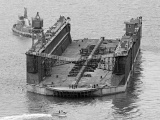1170 Thomas Becket, Archbishop of Canterbury, was assassinated inside Canterbury Cathedral by followers of King Henry II; he subsequently becomes a saint and martyr in the Anglican Church and the Roman Catholic Church.
1427 – Army of Ming Dynasty started withdrawing from Hanoi, put an end to the domination of Đại Việt.
1508 – Portuguese forces under the command of Francisco de Almeida attacked Khambhat at the Battle of Dabul.
1721 Madame de Pompadour, mistress of King Louis XV of France, was born (d. 1764).
1800 Charles Goodyear, American inventor, was born (d. 1860).
1809 William Ewart Gladstone, Prime Minister of the United Kingdom, was born (d. 1898).
1835 The Treaty of New Echota was signed, ceding all the lands of the Cherokee east of the Mississippi River to the United States.
1876 The Ashtabula River Railroad bridge disaster left 64 injured and 92 dead at Ashtabula, Ohio.
1880 Tuhiata, or Tuhi, was hanged in Wellington for the murder of the artist Mary Dobie at Te Namu Bay, Opunake. Tuhi wrote to the Governor days before his execution asking that ‘my bad companions, your children, beer, rum and other spirits die with me’.

1890 United States soldiers kill more than 200 Oglala Lakota men, women, and children with 4 Hotchkiss guns in the Wounded Knee Massacre.
1910 – Ronald Coase, English-American economist, author, and academic,Nobel Prize laureate was born (d. 2013).
1911 Sun Yat-sen became the provisional President of the Republic of China.
1911 Mongolia gained independence from the Qing dynasty.
1930 Sir Muhammad Iqbal’s presidential address in Allahabad introduced the Two-Nation Theory and outlines a vision for the creation of Pakistan.
1931 – The floating dock broke its moorings in Wellington harbour.

1936 Mary Tyler Moore, American actress was born.
1937 The Irish Free State was replaced by a new state called Irelandwith the adoption of a new constitution.
1939 First flight of the Consolidated B-24.
1940 In The Second Great Fire of London, the Luftwaffe firebombed the city, killing almost 200 civilians.
1941 – Birth of Ray Thomas, British musician (The Moody Blues).
1949 KC2XAK of Bridgeport, Connecticut became the first Ultra high frequency (UHF) television station to operate a daily schedule.
1953 Alan Rusbridger, editor of The Guardian, was born.
1972 An Eastern Air Lines Flight 401 (a Lockheed Tristar) crashed on approach to Miami International Airport killing 101.
1975 A bomb exploded at La Guardia Airport in New York City, killing 11 people and injuring 74.
1989 Václav Havel was elected president of Czechoslovakia – the first non-Communist to attain the post in more than four decades.
1996 Guatemala and leaders of Guatemalan National Revolutionary Union signed a peace accord ending a 36-year civil war.
1997 – Hong Kong began to kill all the nation’s 1.25 million chickens to stop the spread of a potentially deadly influenza strain.
1998 Leaders of the Khmer Rouge apologised for the 1970s genocide in Cambodia that claimed over 1 million.
2003 The last known speaker of Akkala Sami – died, rendering the language that was spoken in the Sami villages of A´kkel and Ču´kksuâl, in the inland parts of the Kola Peninsula in Russia extinct.
2006 – UK settled its Anglo-American loan – post WWII loan debt.
2012 – A Tupolev Tu-204 airliner crashed in a ditch between the airport fence and the M3 highway after overshooting a runway at Vnukovo International Airport in Moscow, Russia, killing five people and leaving three others critically injured.
2013 – A suicide bomb attack at the Volgograd-1 railway station in the southern Russian city of Volgograd killed at least 18 people and wounded 40 others.
Sourced from NZ HIstory Online & Wikipedia.
